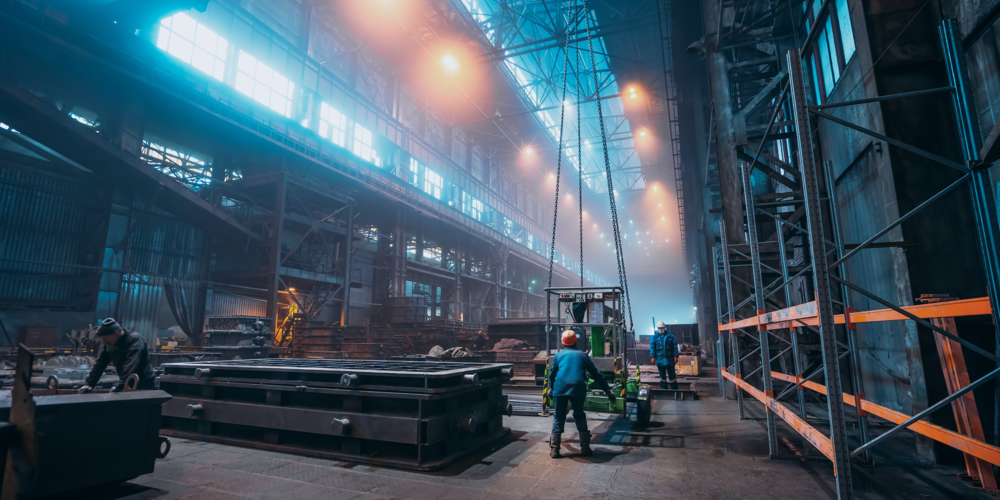
Wire Rope vs Chain Slings – Which Is Best for Heavy Lifting in Your Facility?
Introduction
Choosing the right lifting sling can significantly improve the safety and efficiency of your lifting operations. In manufacturing, the debate often centres on wire rope slings vs. chain slings. But which is best for your heavy-lifting needs?
In this blog, we compare the strengths and limitations of each to help you decide the right fit for your facility.
Wire Rope Slings – Benefits and Considerations
Benefits:
-
High strength-to-weight ratio – excellent for transporting heavy loads over long distances
-
Flexibility – can be used in a variety of configurations (vertical, choker, basket)
-
Cost-effective – typically lower upfront cost than chains
Considerations:
-
Less durable in harsh conditions – susceptible to abrasion, crushing, and corrosion
-
Requires regular inspection – strands can fray, and damage can spread quickly
Best for:
-
Environments where flexibility is key to lift loads of different sizes and shapes
-
Environments with less exposure to wear or extreme conditions
-
Manual handling, lighter than chain for the same load capacity, especially in larger sizes.
Chain Slings – Benefits and Considerations
Benefits:
-
Exceptional durability – resistant to heat, chemicals, and abrasives
-
Adjustability – can shorten legs easily for different load sizes
-
Long lifespan – with proper care, chains can last many years
Considerations:
-
Heavier than wire rope – more labour-intensive for frequent moves
-
Higher initial cost – but can offer better value long-term
-
Inspection – Defects are easier to identify during visual inspection
Best for:
-
Harsh or extreme environments (heat, chemicals)
-
Varied lifting tasks requiring adjustable lengths
-
Facilities prioritising long-term equipment life
Don't Forget Safety and Compliance
LOLER inspections apply to both wire rope and chain slings. For wire rope slings, check for fraying, kinks, and crushing. For chain slings, check for elongation, corrosion, and wear. PUWER compliance ensures that all lifting gear is maintained and used safely.
Regular inspections of lifting equipment ensure that all slings are safe to use, in high throughput environments like manufacturing, it is recommended that lifting equipment is inspected every six months.
Conclusion
-
Wire rope slings: Flexible, cost-effective, great for general lifting
-
Chain slings: Durable, adjustable, ideal for harsh environments
Need help selecting the right sling? Contact our lifting specialists for tailored advice or to book an inspection of your current lifting gear.



